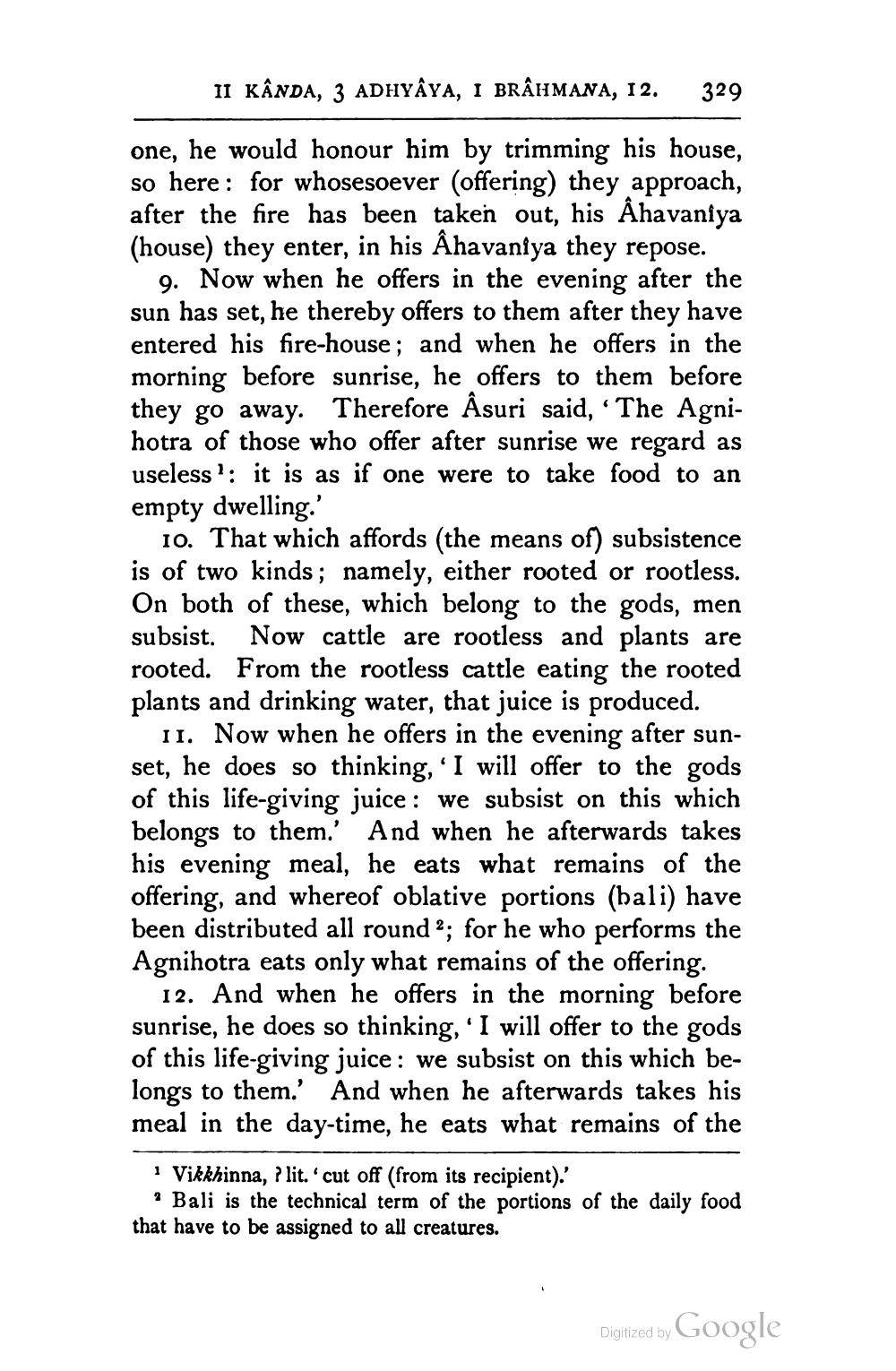________________
II KÂNDA, 3 ADHYAYA, I BRÂUMANA, 12.
329
one, he would honour him by trimming his house, so here: for whosesoever (offering) they approach, after the fire has been taken out, his Åhavaniya (house) they enter, in his Åhavaniya they repose.
9. Now when he offers in the evening after the sun has set, he thereby offers to them after they have entered his fire-house; and when he offers in the morning before sunrise, he offers to them before they go away. Therefore Âsuri said, 'The Agnihotra of those who offer after sunrise we regard as useless': it is as if one were to take food to an empty dwelling.'
10. That which affords (the means of) subsistence is of two kinds; namely, either rooted or rootless. On both of these, which belong to the gods, men subsist. Now cattle are rootless and plants are rooted. From the rootless cattle eating the rooted plants and drinking water, that juice is produced.
II. Now when he offers in the evening after sunset, he does so thinking, 'I will offer to the gods of this life-giving juice: we subsist on this which belongs to them.' And when he afterwards takes his evening meal, he eats what remains of the offering, and whereof oblative portions (bali) have been distributed all round ?; for he who performs the Agnihotra eats only what remains of the offering.
12. And when he offers in the morning before sunrise, he does so thinking, 'I will offer to the gods of this life-giving juice: we subsist on this which belongs to them.' And when he afterwards takes his meal in the day-time, he eats what remains of the
1 Vikkhinna, ? lit. cut off (from its recipient).'
? Bali is the technical term of the portions of the daily food that have to be assigned to all creatures.
Digitized by Google




